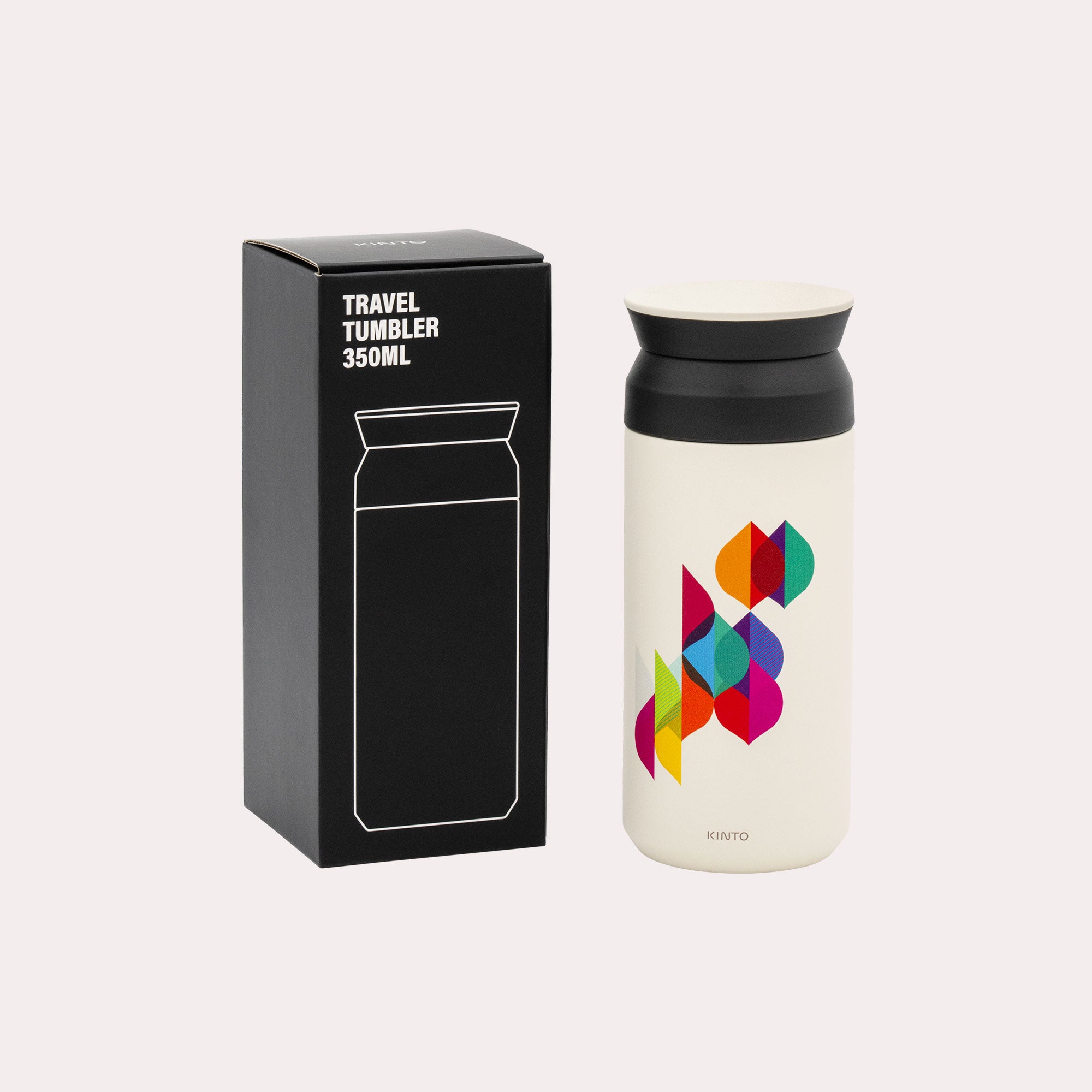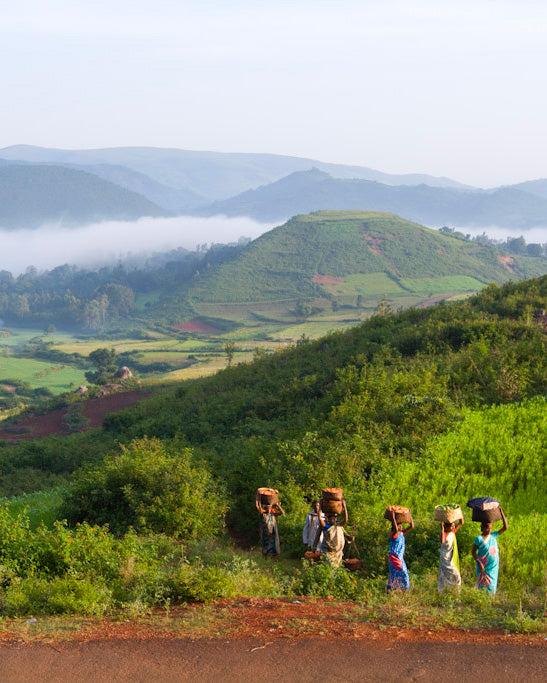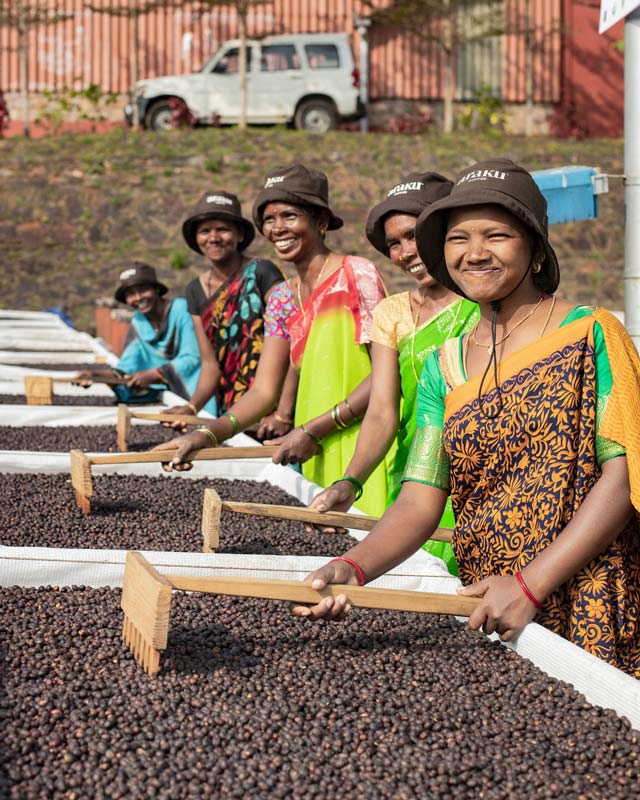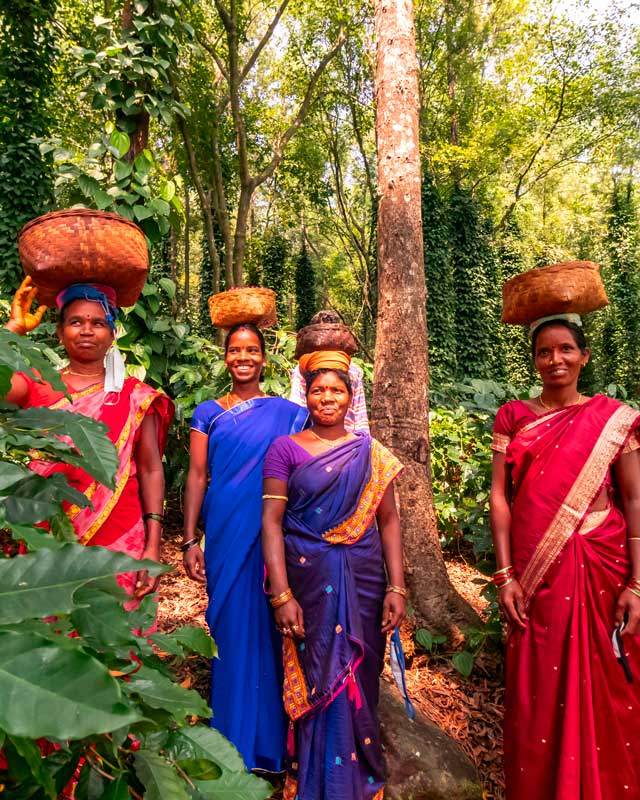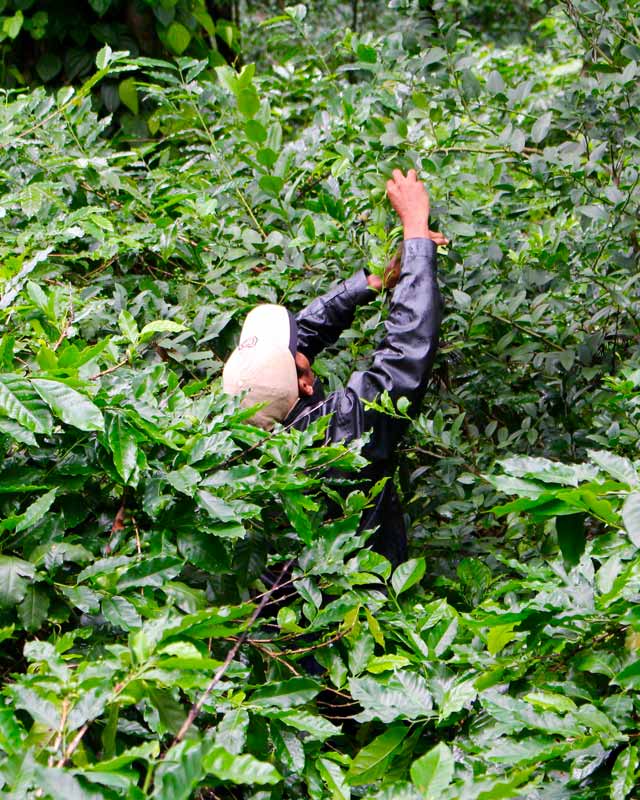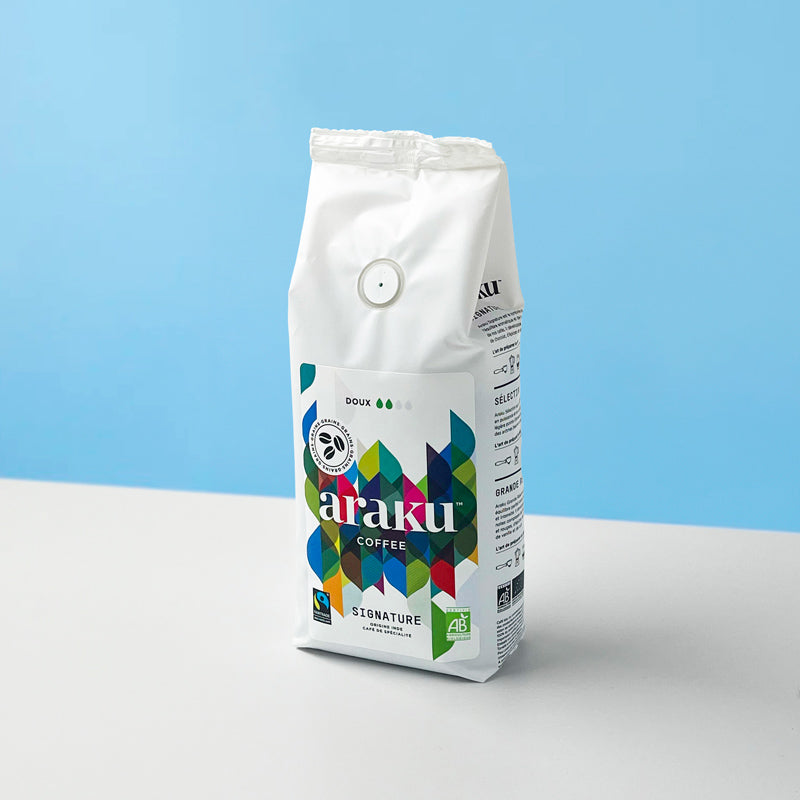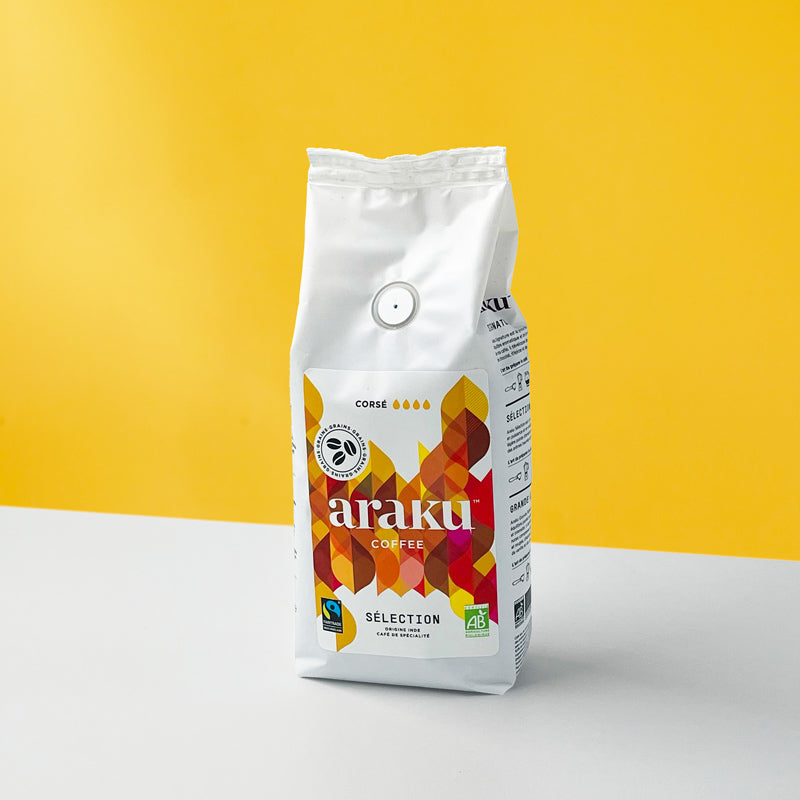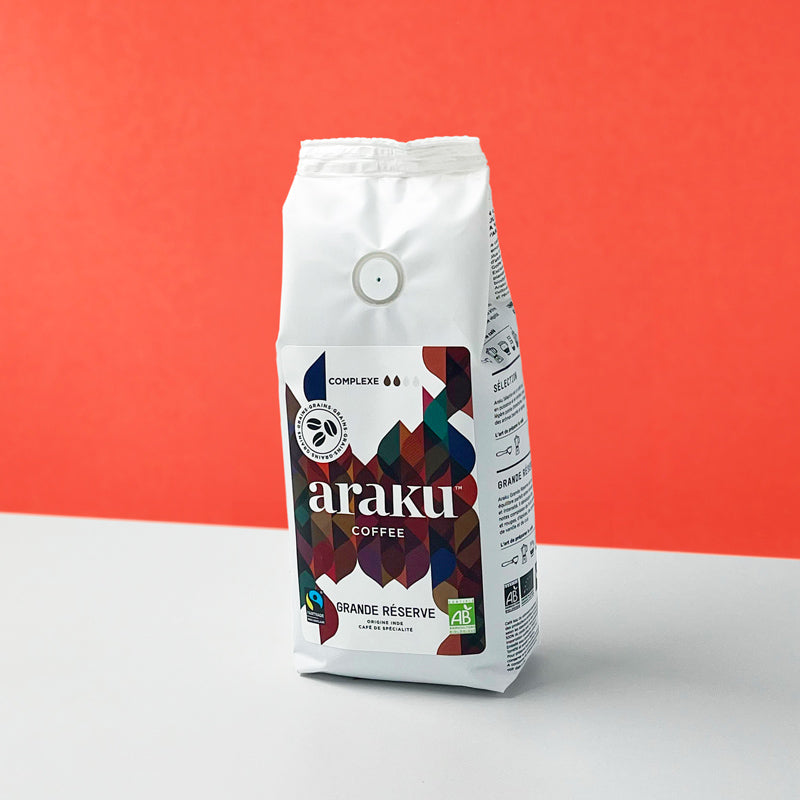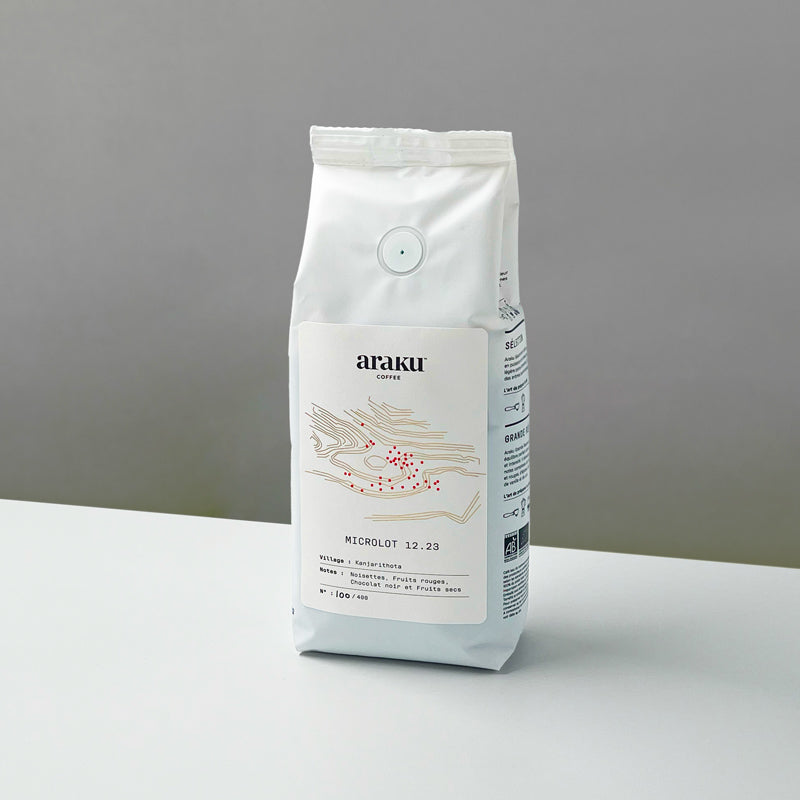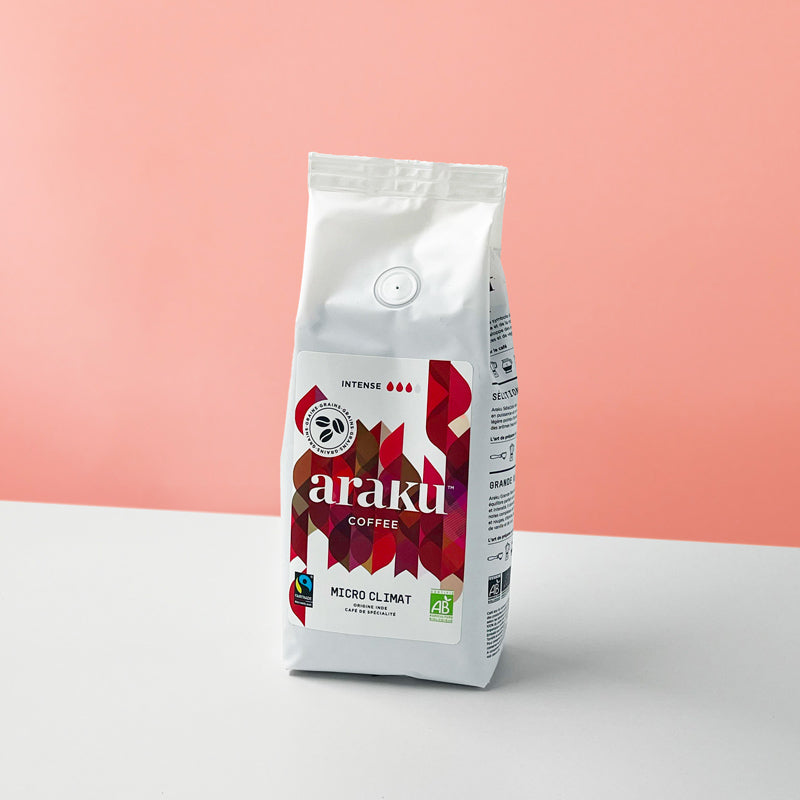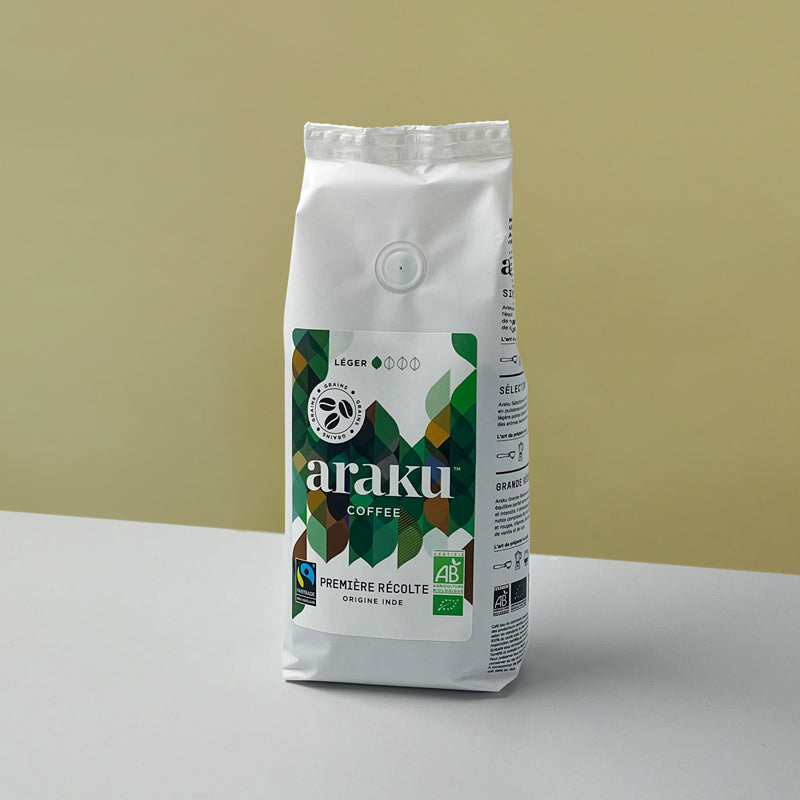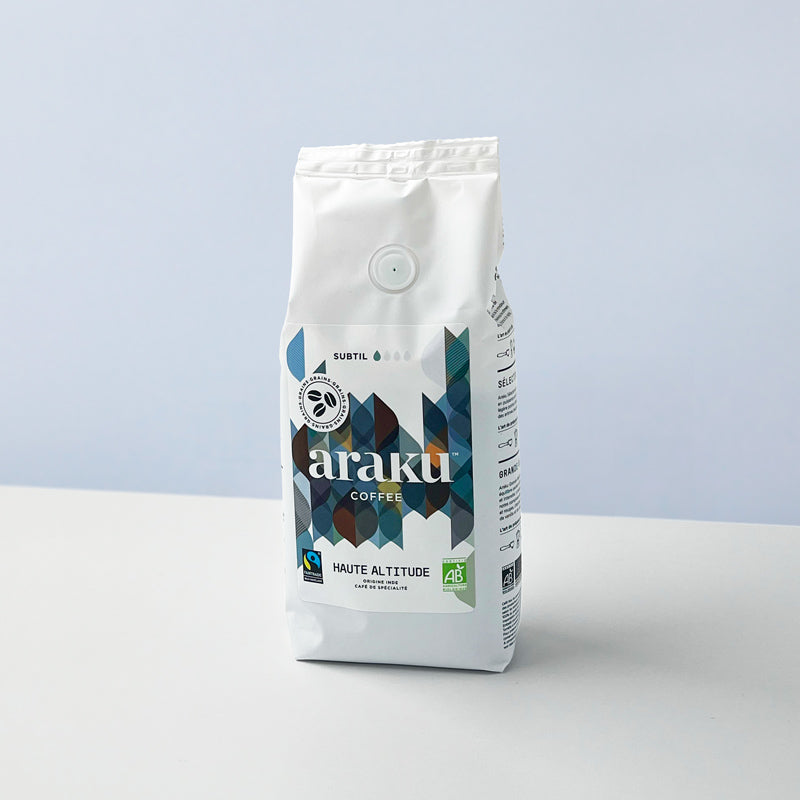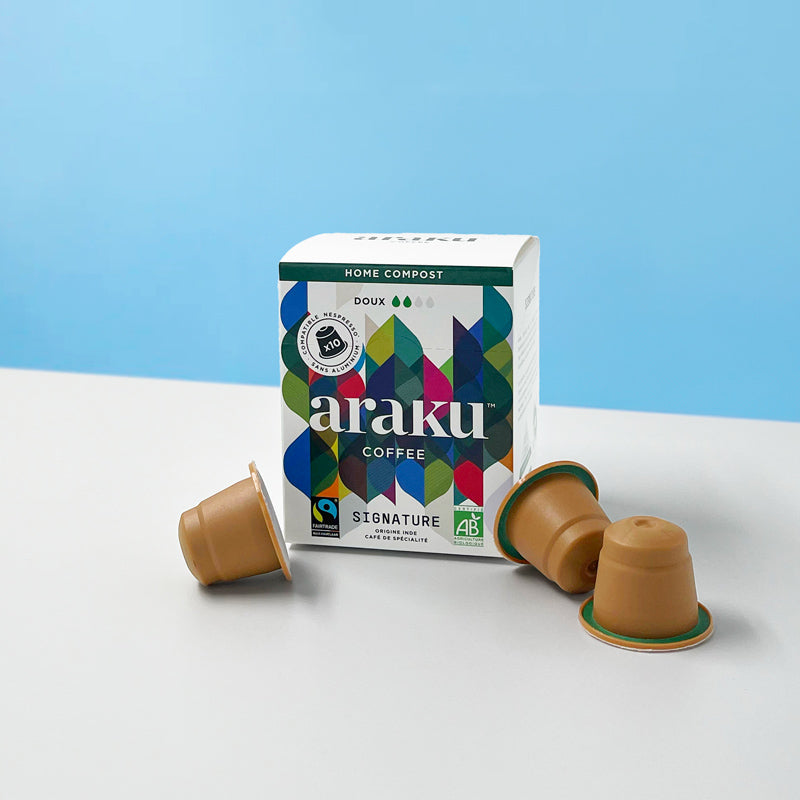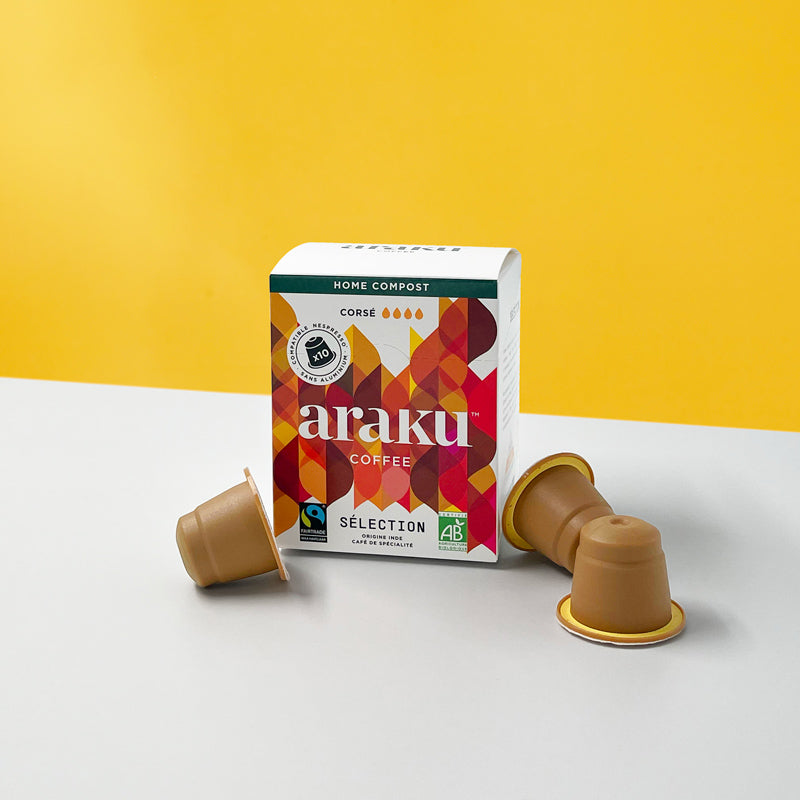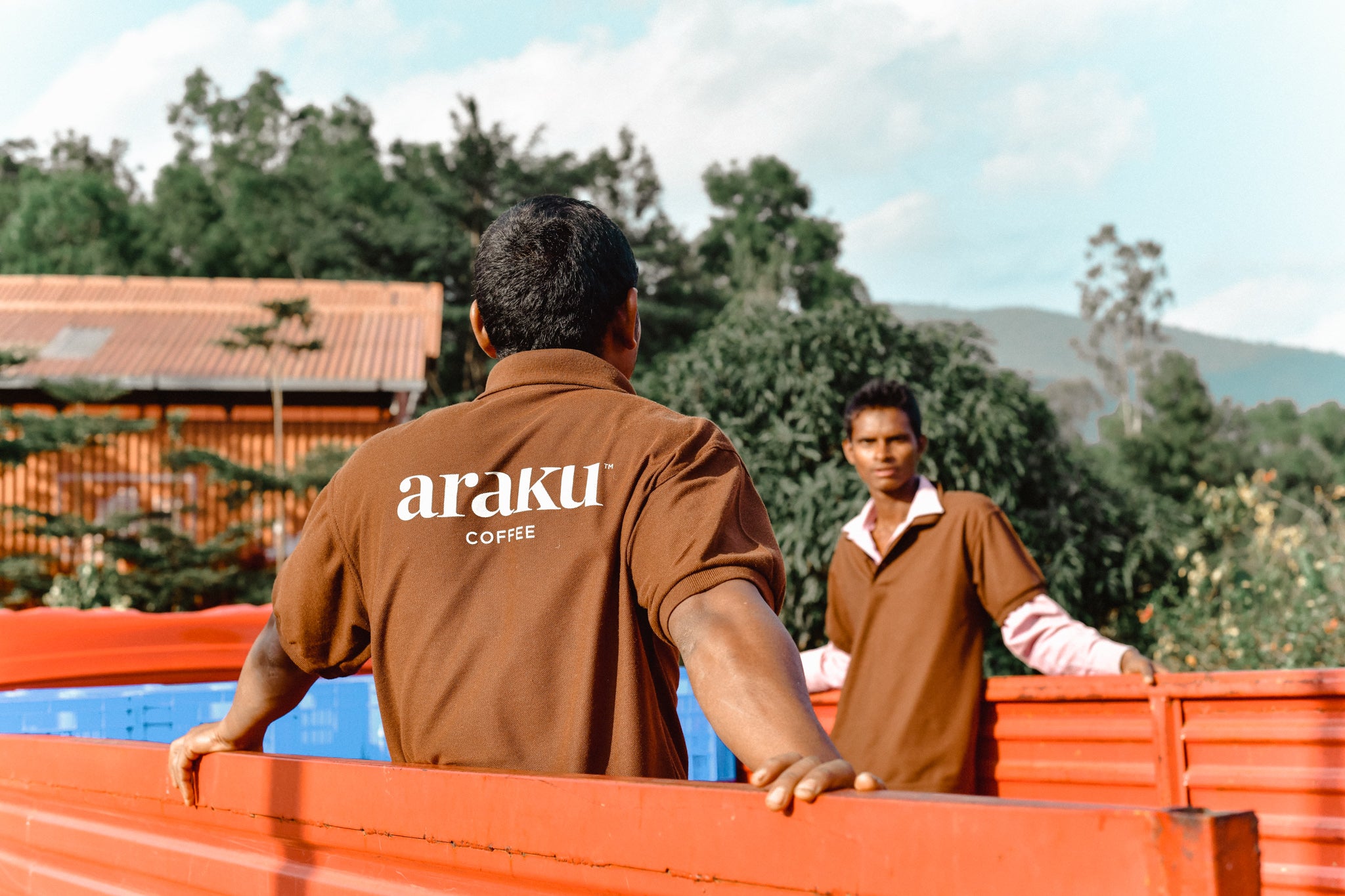INDIA, LAND OF COFFEE
The third country to have discovered coffee after Ethiopia and Yemen, India is considered by experts as a “great origin”, celebrated for its grand cru coffees. Indian coffee offers a unique aromatic signature which combines balance, sweetness and roundness, enhanced by some characteristic spice notes. Today, Araku offers to introduce the general public to this great origin of coffee, which is still relatively unknown.
THE ARAKU VALLEY, BETWEEN SEA AND MOUNTAIN
In the east of India, on the high plateaus of the Eastern Ghats overlooking the Bay of Bengal, the Araku valley extends over more than 350km2. Classified as a Protected Natural Reserve since 1995, the valley is recognized for its purity, biodiversity and fertility. In the local language, Araku means “red earth”. A colorful identity that the brand has chosen to express.
The preserved ecosystem of the valley is ideal for growing coffee. Thanks to its high altitude climate - hot during the day, cool at night - and a soil naturally rich in iron, Araku is a terroir allowing slow maturation which gives the coffee its body, its intensity, its aromatic richness and its candy.
Shaded by silver oaks, mango trees and eucalyptus, Araku coffee plantations are now spread over more than 520 villages.
HAND CULTURE WITH RESPECT FOR ANCESTRAL KNOW-HOW
The valley's farmers are descended from ancestral tribes and cultivate their soil as their parents and grandparents did before them. Their agriculture is healthy and small-scale. It is designed in harmony with nature and based on manual work. No machines and no chemicals are used.
A BIODYNAMICALLY GROWN COFFEE
To go even further in this respect for nature, David Hogg, expert in agriculture and biodynamics, introduced farmers to the principles of biodynamic cultivation. Araku is today the largest certified organic and biodynamic agriculture coffee plantation in the world.
Invented by Rudolf Steiner in 1924 and considered the organic crop of tomorrow, biodynamics is a set of natural methods to promote the quality and health of crops. Man and nature work together to nourish and support plants at each stage of their development, at the heart of a healthy and balanced ecosystem, in cohesion with the cycles of life. Thus, Araku coffee trees flourish in the best possible conditions. And the coffee they produce has a unique flavor profile.


